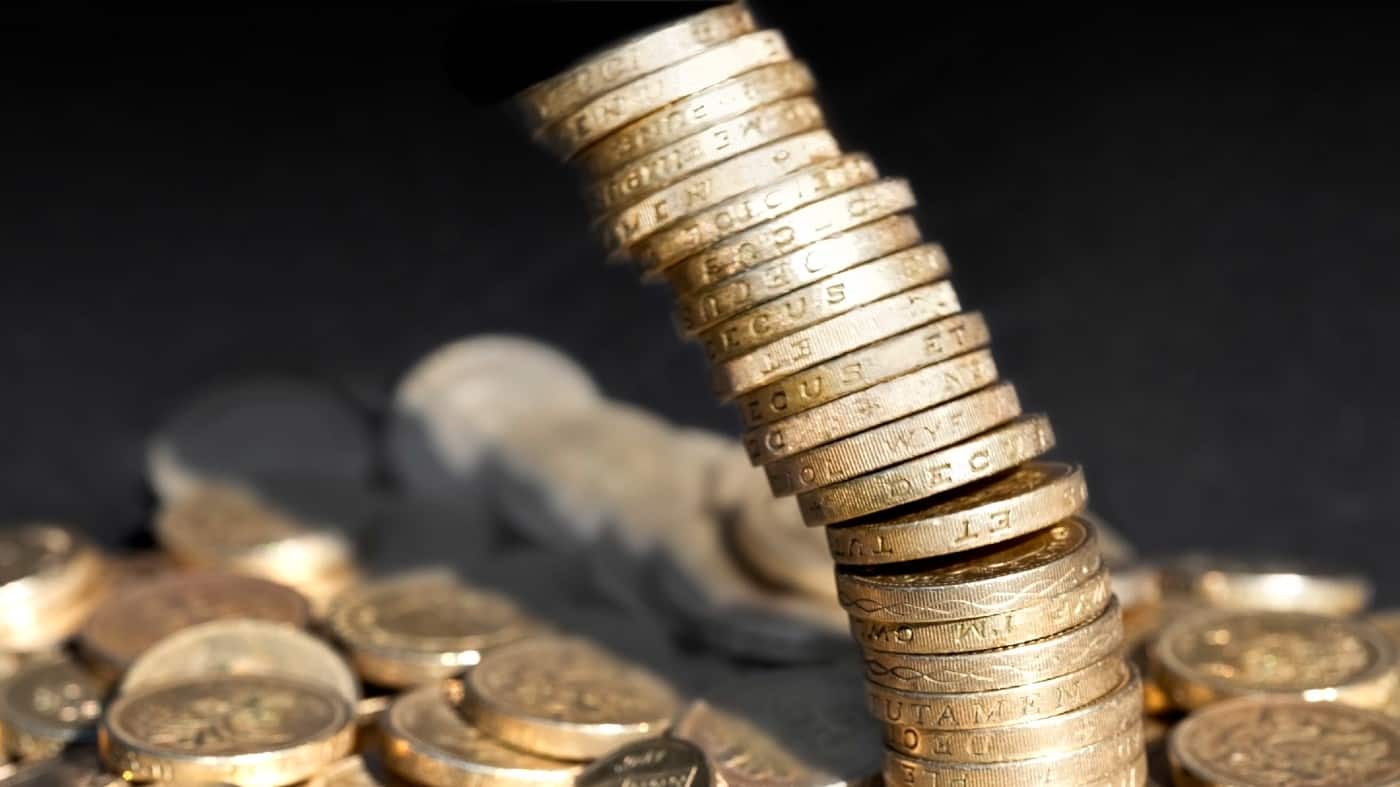When times are good, there is often lots of money to be made in banking. Last year, for example, Lloyds (LSE: LLOY) reported profits after tax of £5.9bn. But as the economy worsens, business could get tougher for banks. What might that mean for the Lloyds dividend?
Cash machine
At the moment, the dividend is 2p per share. With the share price in pennies, the dividend yield is 4.6% at the moment. I regard that as attractive. Indeed, income potential is one of my reasons for owning Lloyds shares.
But actually that dividend is much less than I think Lloyds could afford to pay out. Back in 2018, the last financial year in which its dividends were not affected by the pandemic, the bank paid a dividend of 3.21p per share. That is more than 60% higher than the current dividend. Yet post-tax profits that year came in at £4.5bn. That is certainly a lot of profit, but it is almost a quarter less than the bank earned last year. In other words, over the past several years, Lloyds grew its earnings but significantly reduced its dividend.
Last year, paying such dividends cost the bank £877m. Its earnings were far higher than that. In fact, it had so much spare cash that it launched a £2bn share buyback.
Why isn’t the Lloyds dividend bigger?
That raises the question: why is Lloyds not using some of its excess cash to pay a bigger dividend?
One explanation could be that Lloyds is actually being held back by its progressive dividend policy. The bank aims to pay out a bigger dividend each year. If it uses lots of cash to do that, the policy could be hard to sustain if business worsens, for example because a recession leads more borrowers to default. A share buyback is a more flexible way for the bank to use excess capital. It can increase or decrease its share purchases each year, while continuing to grow the dividend.
But as a shareholder that does not necessarily appeal to me. A progressive dividend policy ought to be good news for investors. Instead, it feels to me as if the reduced baseline of the restored Lloyds dividend makes it easier for the bank to keep growing it. However, I would rather have a high dividend now and accept it may fall if business worsens. That does not seem to be how the bank is approaching the issue.
Looking ahead
In reality, even though Lloyds aims to maintain a progressive dividend policy, what happens in future depends on the business performance. The large coverage afforded by the current dividend size relative to profits means that, even if earnings fall as they did in the first quarter compared to last year, the bank could keep growing its dividend.
But that can only go so far. If profits plummet and stay low, the Lloyds dividend could be under threat. That happened during the last financial crisis, when the dividend was cancelled for years. I am not factoring in expectations of large rises for the Lloyds dividend in coming years when deciding whether to keep holding the shares. The current yield is already attractive to me so I will continue to hold. But if I think it may be cut, I would consider selling.







